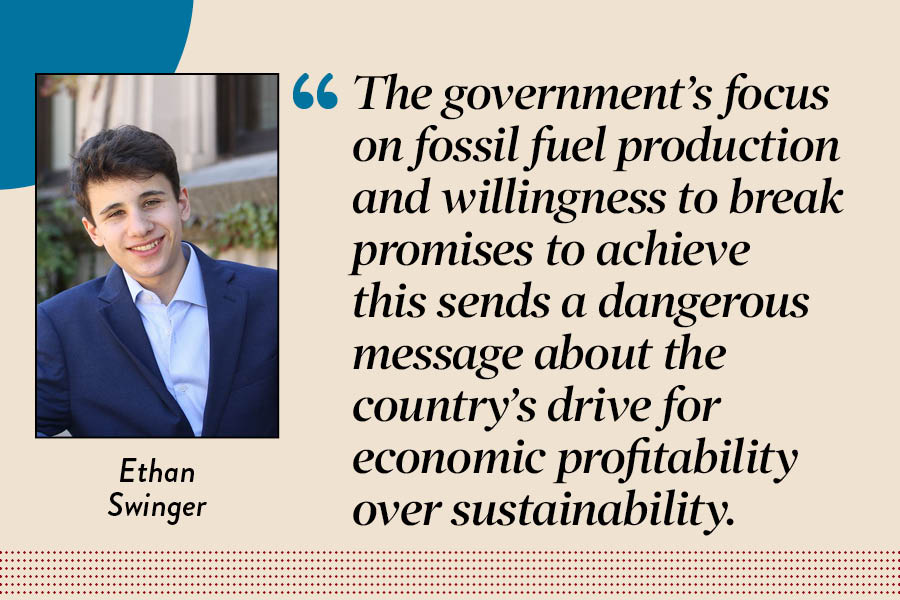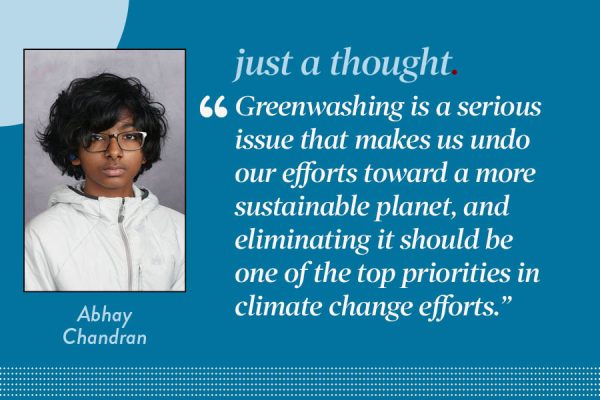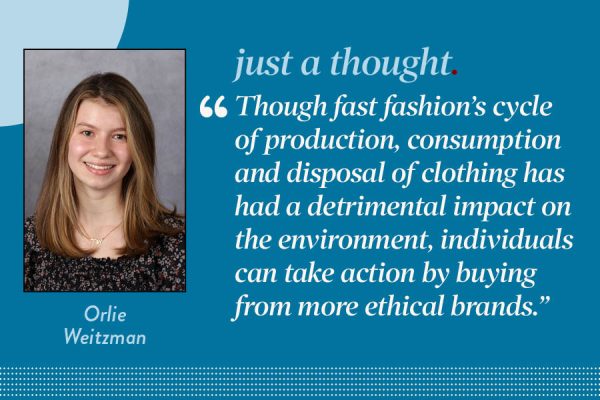Due to American administration’s lackluster response to climate change, harmful oil project reapproved
Midway Staff
Ethan Swinger argues that the Biden administration reauthorization of the previously-halted Willow project serves as a harrowing reminder of the country’s insufficient efforts to address climate change.
March 30, 2023
The Willow oil drilling project was proposed by ConocoPhillips, a petroleum refinery company, in 2020, and was originally approved during the Trump administration. The project is located on Alaska’s remote North Slope, the nation’s largest public land expanse. The Willow project was annulled in 2021.
During his campaign, President Joe Biden promised not to initiate new oil drilling projects on public lands, yet the administration nonetheless reapproved the construction of three drill pads on March 13. However, this decision was somewhat constrained, as the alternatives to the Willow project would be to allow additional oil and gas drilling in the Arctic.
Reapproving the Willow project is a step in the wrong direction since it harms local communities, wildlife, and most importantly, the environment, due to its immense carbon emissions. In the face of a climate crisis, the United States needs to prioritize alternate energy source development and not increase sources of fossil fuel production.
The Biden administration has notably banned drilling in a large region of the Arctic Ocean and is working to limit or prevent the practice in 20,000 square miles of the National Petroleum Reserve in Alaska. Mr. Biden has also notably halted oil and gas drilling permits.
The Willow project is projected to churn out 629 million barrels of oil over its 30-year duration. The endeavor will produce carbon emissions equivalent to 1.7 million gasoline-fueled cars annually and target the disproportionately warming Arctic Circle.
Additionally, the drilling site neighbors the Native Alaskan village of Nuiqsut, which is already surrounded by oil and gas activity and has caused concern for wildlife and potential gas leaks. Others believe that the project may lead to more oil drilling projects in the area. In response to the Willow project’s environmental impacts, the climate organization Earthjustice unsuccessfully attempted to stop the project after filing a lawsuit on March 14.
A week after the reintroduction of the project, the United Nations released a monumental climate report on March 20. According to the U.N.’s Intergovernmental Panel on Climate Change, to prevent the worst outcome of global warming it is vital to eliminate almost two-thirds of carbon pollution by 2035.
“The pace and scale of what has been done so far and current plans are insufficient to tackle climate change,” IPCC chair Hoesung Lee said. “We are walking when we should be sprinting.”
While the United States has gradually decreased its carbon emissions over the past decade, emissions have increased 1.3% compared to last year. We are simply not adapting fast enough, and new developments, such as the Willow project, are unfortunate examples of such.
The switch from predominantly using fossil fuels to renewable energy sources is a must for future sustainability. Yet the government’s focus on fossil fuel production and willingness to break promises to achieve this sends a dangerous message about the country’s drive for economic profitability over sustainability.
Some may argue that the Willow project is necessary for the United States due to recent increasing oil prices and high demand following the Ukrainian invasion. However, the project will take years to build since many legal challenges have hindered the development of its infrastructure and construction can only be done during winter.
In the wake of the U.N.’s distressing climate report, climate change poses a catastrophic threat to future sustainability. The government’s willingness to break promises that fight against it, as seen in the Willow project, serves as a harrowing reminder of the country’s lackluster efforts to sufficiently address climate change.


















